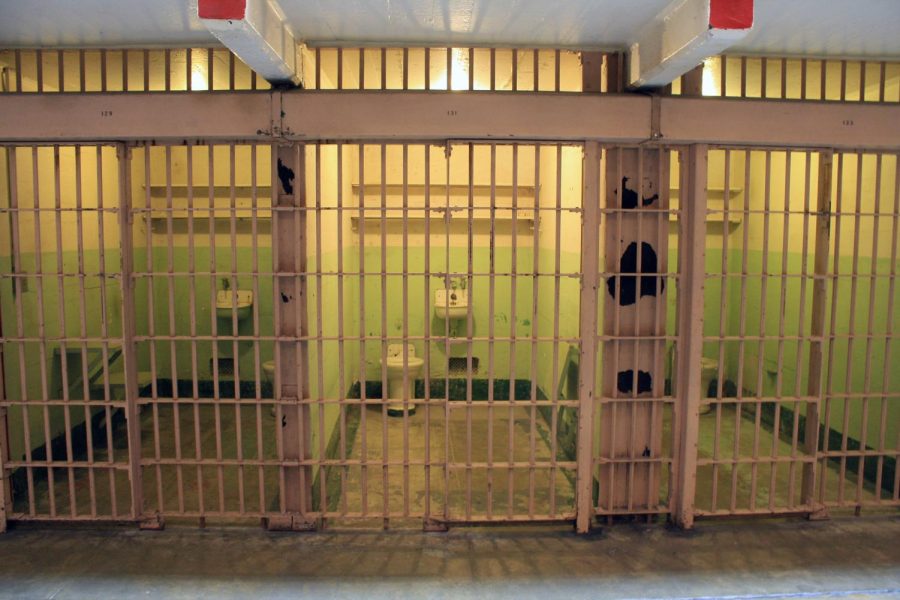New Mexico is Failing Inmates
Poor prisoner healthcare is both an ethical and a practical failure
From Flikr by in0_m0x0 (Attribution 2.0 Generic (CC BY 2.0))
Poor healthcare options for prisoners are both ethically wrong, and hurts the larger community.
New Mexican inmates are dying unnecessarily, being disenfranchised, and neglected as members of society. The Prison Policy Initiative found that if New Mexico were to be a sovereign nation, it would have the 19th highest per capita incarceration rate in the world. Therefore, it becomes imperative to ensure that such a large proportion of our population are being taken care of, both because it is the ethical approach, and because it is better for the larger community.
Yet, that goal has consistently proven to be a failure., New Mexico’s prisoners receive some of the lowest quality healthcare in the country. 44% of NM prisoners are infected with Hepatitis C, a curable virus with an effective vaccine, and many die from it. Healthcare neglect runs rampant in NM correctional centers
It’s easy to lack sympathy for prisoners and I understand the instinct to do so. There’s a sentiment that if an individual commits a crime, they bear the consequences. However, 44% of New Mexico prisoners are in for non-violent offenses, like drug crimes. Essentially we’re allowing a single mistake to dictate the fate of a human being.
Numerous studies show that rehabilitation reduces recidivism, unemployment, and poverty;Yet, proper rehabilitation is likely to fail if we are not taking proper care of current inmates. New Mexico’s physician and nurse shortage is already severe. The shortage becomes more critical in NM correctional facilities. Because many prisons in our state are privately run, they are hemorrhaging staff, and prisoner health is deteriorating. New Mexico does not have high access to health supplies and received a D- in its response to COVID-19 in prisons, leading to even more unnecessary inmate deaths. In women’s prisons, basic products such as tampons carry taxes often impossible for prisoners to pay forcing them to ration menstrual health products each month.
Numerous lawsuits highlight how easily preventable infections turn deadly when not addressed by prison medical staff. When Efrain Martinez complained of chest pain, his doctors sent him back to his cell with Tums, not catching a congenital heart infection. His attorney further states that dozens of NM prisoners die because their brain, heart, or spine infections go unchecked. That doesn’t even begin to address the issue of tumors and trauma, both of which require more medical attention than infections and are often more lethal.
Additionally, many physicians do not want to work in prisons leaving non-board certified or lackluster physicians to be the primary care doctor on site. It then becomes impossible for any inmate to be referred to a specialist.
Above all, not affording offenders access to care is wrong. That statement triumphs over any statistical argument. Regardless of clashing stances on rehabilitation vs. punishment, allowing offenders and even felons to die of our neglect is not the proper means of correcting wrongs, or making society safer.
I’m calling on local legislators to ensure that healthcare products, such as hand sanitizer and menstrual products, are widely available in prisons as well as health education. Furthermore, legislators should encourage tele-health, an inexpensive and effective first step, as Project ECHO has shown. Also, I’m asking that board-certified physicians from a variety of specialties, especially oncology and surgery, work with their network to provide services in prisons.
New Mexico has a responsibility to its inmates for not only rehabilitation purposes, but also for community upliftment. Many NM prisoners will one day return to society and will need to be healthy to be the best members of our community they can be. I’ve personally seen a myriad of cases where formerly incarcerated people have turned their lives around to help others. The people I worked with at Project Echo were are all formerly incarcerated and are now some of the most valuable members of our city, helping parolees to get back on their feet. Those parolees, in turn, end up giving back to our community once again. By guaranteeing the health of inmates, we’re contributing to the uplifting of the New Mexico community as a whole.

Neil Mahto '23 is the life of the party in every group and situation. You can always count on him to crack the right joke and put a smile on your face....








Louis • Sep 4, 2022 at 4:22 am
New Mexico has a high recidivism rate because NMDOC no longer has any programs to help inmates become productive members in society. Roswell Correctional Center is probably the worst place for anything medical or as far as programs go. They call it work camp but they don’t even have any jobs for the inmates.
Mrs. Vaughn • Sep 10, 2022 at 7:25 pm
My husband has been in Hobbs and Snmcf since we’ve been together. All the staff at both places are the laziest I’ve ever heard of. They pick and choose what they want to do. Even pushing a button to open a door is too much for the COs. Everyone passes the buck, no one takes accountability for shit. The morale is shit. They’re not there to help anyone. They’re just there to clock in, clock out and go home.
PHarrel • Oct 24, 2023 at 6:33 am
I agree to a degree. Idk what the COs do but behind the scenes, the office personnel & medical staff are each doing the job of 2 people. They have medication nurses who bust a** to pass meds to literally 100’s of inmates 2 times daily, still can’t keep up. 1 RN to run sick call & be the whipping tool for the providers. Difficult to keep up. It is a very demanding & sad place to work if you have a heart & tendency to be compassionate. The harsh conditions pick at you & try to change your perspective. The administration tryst to twist employees to that hardened overseer. I have come to the conclusion that most inmates come from homes of abuse & neglect. Getting in trouble is a manifestation of that…acting out like the child they used to be. They go into the system which is just a continuation of that abuse & neglect and although they are uncom& dislike it, it doesn’t keep them out…it’s familiar & some attention is better than no attention. It is brutal. The food is trash, the health care subpar & the nurses hands are tied to what she can do. The NP/Dr’s dictate & treatment who they want, when & how they want…do get me wrong, they are busting a** too. The overall environment of jails & prisons are vortices of misery. They get sucked in & cannot escape it for whatever cause or reason.